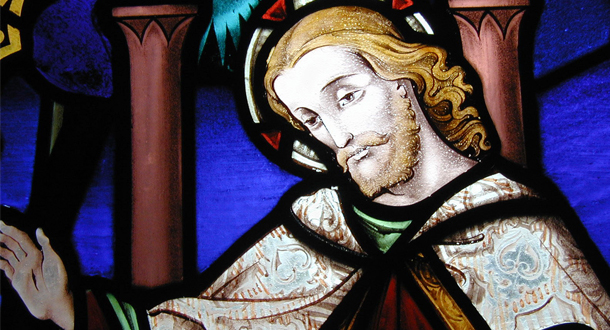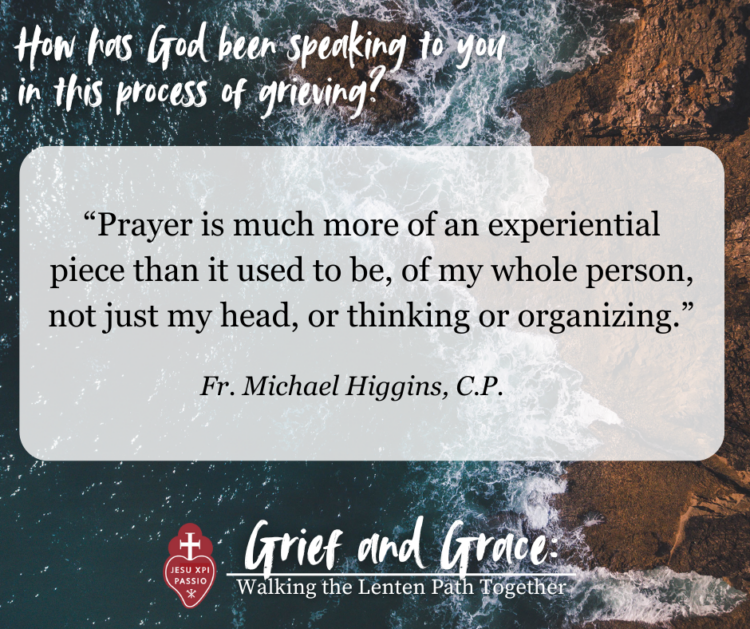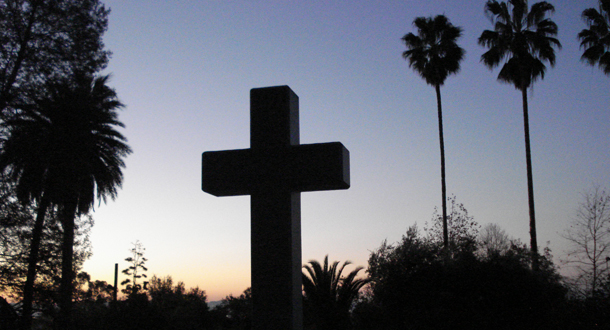
Thursday of the Fifth Week of Lent



Scripture:
Reflection:
If I lived in Jesus’ time and heard him say some of the things that John reports, I would have joined the questioning and skeptical voices. After all, he was just a young man from Galilee who claimed that he existed before Abraham and that he knew God in a way even the elders and religious authorities didn’t. Besides, if what he said was true, it would change everything, even requiring those in power to bow before and serve others rather than the reverse.
In our present day, though, when we read Jesus’ claims, we think nothing of it, having gotten so comfortable in our Christianity that we barely pay attention to such statements. Yet, I wonder if we too blithely shrug our shoulders, too easily dismissing his statements and the accompanying challenges. I fear that God’s voice is crying out all around us, and we harden our hearts to the message. How seriously do we believe that Jesus is the Son of God who has existed since before time? And what does it mean if we do? Has our Christianity become more of a set of cultural beliefs and familiar rituals instead of giving ourselves over to a supernatural, ever-living God whom we follow and worship above all else?
I know I sometimes catch myself shying away from God’s word because I know it requires changing my life. Giving up chocolate like I did as a kid doesn’t hold a candle to what Jesus asks of me now. What about giving up my own privilege and security – physical, financial, and social – in service to others? What about standing up for those without a voice rather than throwing stones from the comfort of my cushy recliner? What about taking the risk of speaking out against the injustices happening today?
These are the questions of Lent, especially as we approach the Passion. Jesus is crying out in our lives. God weeps that we stray so far from the divine covenant. When we hear God’s voice trying to break through in our hearts, in our lives, in our world today, I fall on my shaking knees and pray that we don’t harden our hearts. Let’s take Jesus seriously, reflect ever more deeply on his mission and mandate to us, and follow his teachings even if they lead to the cross.
Amy Florian is a teacher and consultant working in Chicago. For many years she has partnered with the Passionists. Visit Amy’s website: http://www.corgenius.com/.
“I used to be very formal in the way I structured my prayer time in terms of acts of faith, hope and love—all the things you learn in Novitiate. With the years, I pray much less formally, it just becomes kind of a natural rhythm, the way one approaches God. I often just sit and I’m able to gaze at the crucifix or to sit with an experience or a concern that I’ve had, or sit quietly and trustingly with God. It’s much more of an experiential piece than it used to be, of my whole person, not just my head, or thinking or organizing.”
~Fr. Michael Higgins, CP


Scripture:
Daniel 3:14-20, 91-92, 95
John 8:31-42
Reflection:
Coming to Believe
We meet the three young men who will not worship the golden statue that King Nebuchadnezzar has set up. Bound tightly by the strongest men in the army they are thrown into a white hot furnace. But the God of Israel sends his angel to deliver those who will not serve or worship any other god.
Despite the red face of the King and the raised eyebrows of those at court, there is no emotion. Simply, young men will be faithful to their God; they are in for all.
John’s gospel shows us people coming to believe in Jesus. There are the great Lenten gospels of those who profess their belief in Jesus as the Son of God – the woman at the well, the man healed at the pool of Siloam, Martha and Mary at the raising of their brother Lazarus. We meet others searching, like Nicodemus, and Jesus’ apostles and disciples who listen and follow Jesus teaching.
Jesus, who is sent by the Father and is one with the Father, will do the will of his Father. Unlike Isaac, the son of Abraham, whom God prevented from being sacrificed. Jesus, the Son of the Father, embraces suffering and death on the Cross. The Father’s love for us is shared by the one who does the Father’s will. Like the young men who enter the furnace even if God should choose not to save them, Jesus does the will of the Father, drinking from the chalice of suffering, trustingly laying down his life that all might be saved in this act of love.
The nails of the cross do not yield, Elijah does not come, but the bonds of death do not hold Jesus bound.
John’s gospel is the story of coming to life in Jesus. Those we meet in the Gospel who did not believe, those who do not believe now, all are invited to the mystery of God’s love at work among us. From the Cross, John’s Gospel says that the last breath of Jesus breathed over his Spirit upon those gathered beneath the Cross. That is all of us.
Pope Francis offered a prayer during the days of Easter celebration. He shows us the Risen Lord, his mother Mary, kneeling before the Father, present too is the Holy Spirit. Jesus shows his wounds to the Father and says, ‘Father, remember how much we love them’.
John’s Gospel is a love story. One of sacrificial love for all of us. It draws us to God’s love for us.
Fr. William Murphy, CP, is a member of Immaculate Conception Community in Jamaica, New York.
Click the button to read the magazine and watch the other interviews.
Click the button to read the magazine and watch the other interviews.
Click the button to read the magazine and watch the other interviews.
Click the button to read the magazine and watch the other interviews.
